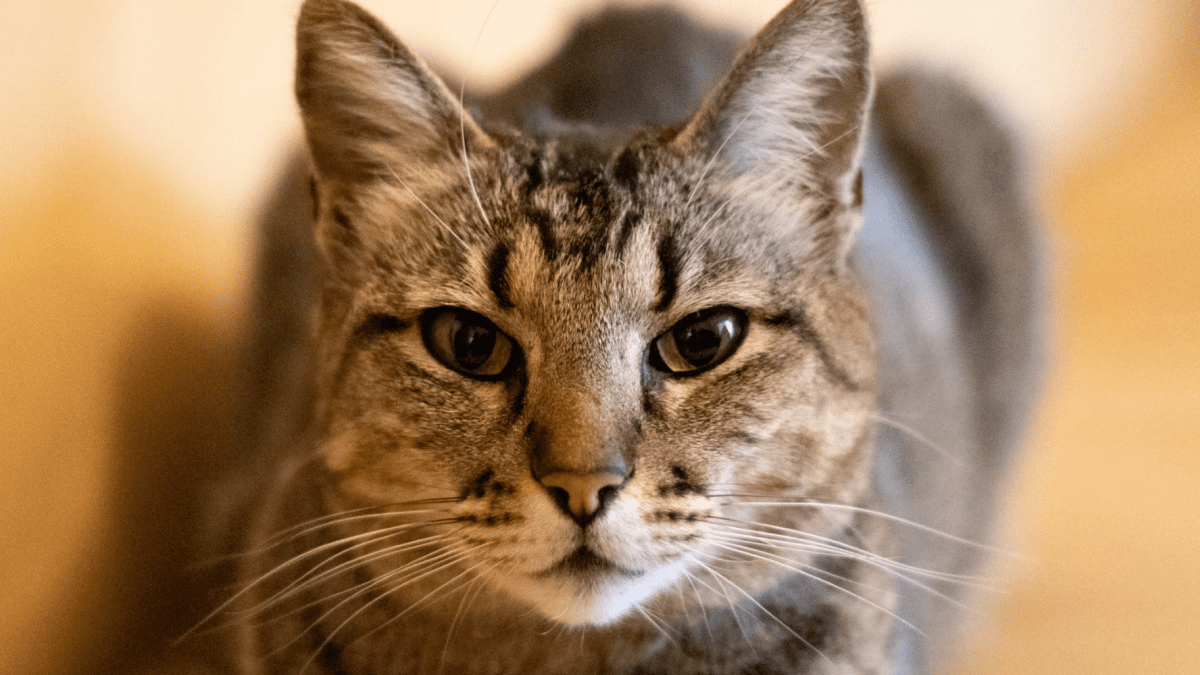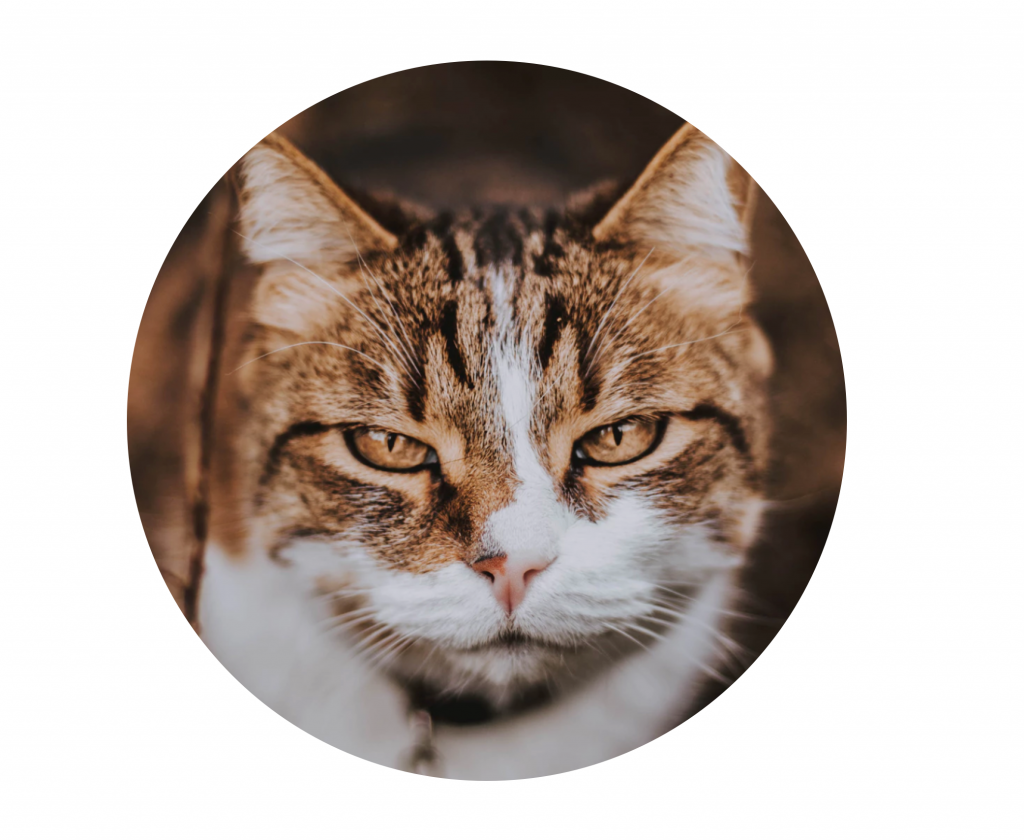
A guide to a cat’s facial expressions
8 May 2019.
Cats are lovely animals that make great companions. Much like humans, they’re also capable of showing emotion through their faces. Whether you own a cat or are a cat sitter, it’s vital that you take some time to learn about a cat’s facial expressions and body language. It will give you a better understanding of when you can approach a cat and when it’s best to leave them alone.
Table of contents
1. Relaxed and happy cat facial expression
If your cat’s face isn’t particularly showing any emotion then it’s likely that they’re just relaxed, calm and comfortable. They’ve grown used to their environment and are probably lazing around either stretched out or curled up in a ball.
Typical signs of a relaxed cat:
- Ears are relaxed and facing forward, they are soft and rounded.
- Eyes are shut/half closed with small pupils
- Mouth is closed
- Whiskers are relaxed on their face

It’s safe to stroke the kitty and enjoy a cuddle together.
NOTE: A great bonding exercise, is slowly blinking while looking at your cat. In cat language this means: I trust you soooo much, that I can close my eyes while you are there – I like you a lot.
2. Alert cat facial expression
Cats can appear cute, fluffy and adorable, but do keep in mind that their ancestors were excellent hunters that would stalk their prey and pounce when they noticed a moment of weakness. Cats can still don this alerted expression especially if there’s something unfamiliar that they’ve noticed. They’ll typically look more cautious with their feet in a position that is either ready to run away or pounce. They may tilt their head back, perk their ears up and sway their tail from side to side.
Typical signs of an alert cat:
- Ears pricked forward and pointed
- Eyes open with small pupils
- Mouth closed
- Whiskers pointed forward

You can try and get the kitties attention, but you may find it difficult 🙂
3. A stressed cat’s facial expressions
Stressed felines tend to slump their ears and they’ll often tuck their legs in and lay down. They’ll seem a little alerted and they’ll typically avoid or ignore anything you do. A stressed cat may also exhibit aggressive behaviour, constant meowing or even show a lack of interest in you.
Typical signs of a stressed cat:
- Flattened ears
- Eyes open with wide pupils
- Mouth closed, but may let out a hiss or two
- Whiskers pointed forward

If you notice changes in your cats behaviour, it’s best to take them to the vet as soon as possible. If their health checks out, then you may want to consult a cat behaviourist for further advice.
4. A worried/anxious cat’s facial expression
As a survival instinct, cats are always on high alert. If they see something in their environment that worries them, they may crouch down and want to hide if possible.
Typical signs of a worried kitty:
- Ears pricked, with one ear to the side
- Eyes open with wide pupils
- Mouth closed
- Whiskers pointed forward

When a cat is worried, it won’t want to be touched. Would you want to be tickled while doing your tax return?
5. Depressed kitties facial expression
Did you know that cats can get depressed too? Although hard to diagnose, it’s often a result of prolonged stress. An unhappy cat will often sleep longer than usual, groom less and be uninterested in things they normally enjoy.
Typical signs of an unhappy cat:
- Ears forward but drooping
- Eyes open but looking down
- Mouth closed
- Whiskers drooping

Tip for Cat Sitters: Cats are really good at hiding their feelings. If you have any concerns as to whether the cat is unwell or just being a little shy please ask the owner. After all, they do know their kitties best.
- #cat behaviour
- #cat body language
- Cat Care
- cat daycare
- cat face
- cat minding
- cat sitter service
- depressed cat
- happy cat
- worried cat
